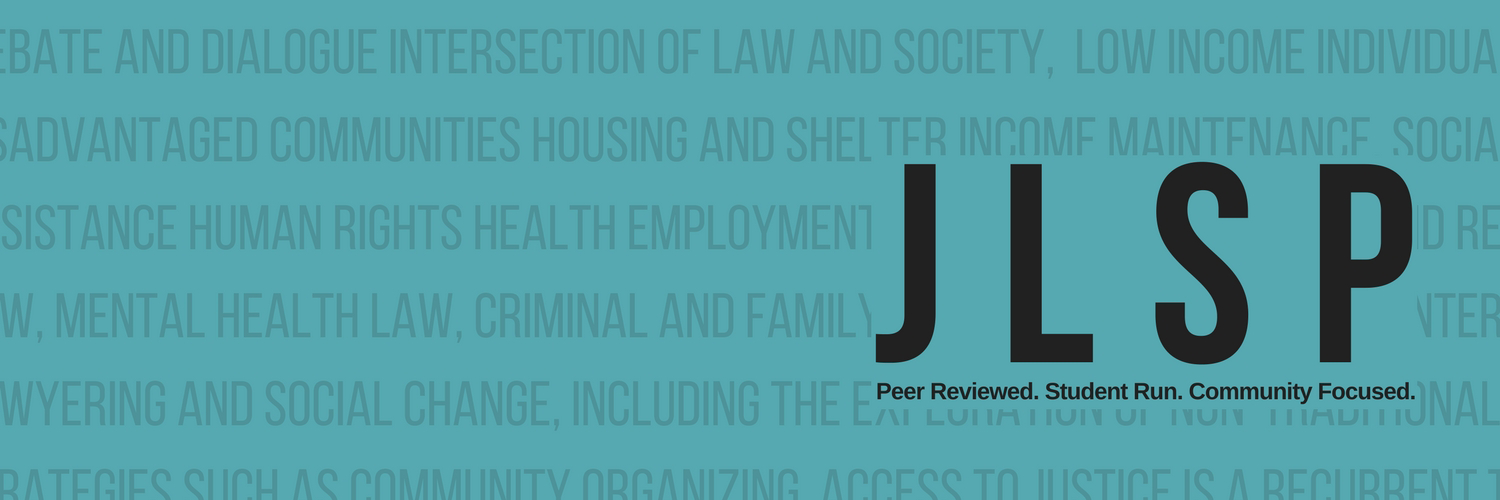
Publication Date
2015
Keywords
Right to housing; Housing--Law and legislation; France
Document Type
Article
English Abstract
The goal of this essay is to examine the implementation of housing rights in France. Legislation adopted in March 2007 opened the possibility of an enforceable right, which can be asserted before a court. However, it also created new inequalities before the law. Indeed, the conditions required to access that right exclude people who do not have permanent residence or a valid temporary resident permit. The implementation of this right is also limited due to the lack of available housing, especially at Ile-de-France, and to competition between people with priority entitlements. The horrible fire at a furnished Parisian hotel in which 24 people— mostly immigrants—died in April 2005 demonstrated that the emergency housing system has its limits. While French law may impose obligations to shelter people in distress, the amount of housing and shelter space is not sufficient to meet the needs in this area. A review of the establishment of a housing right for all also demonstrated possible conflicts of interest between various decision-makers: the state (represented by the prefect), territorial authorities, and social housing authorities. This essay first examines legislation regarding the right to housing and explores the origins of the right to housing. The selection process is then analyzed. The essay concludes with a reflection on the social consequences of the implementation of the right to housing, and on what failures in its implementation reveal regarding the state of social protections offered by the post-welfare society.
French Abstract
Cet article a pour objectif de mettre en lumière les conditions de mise en œuvre du droit au logement en France. Si la loi adoptée en mars 2007 a ouvert la voie à un droit opposable, qui permet désormais aux personnes de faire valoir ce droit devant un tribunal, elle a aussi instauré de nouvelles inégalités devant le droit. En effet, les conditions requises pour accéder à ce droit excluent les personnes qui ne disposent pas d’un droit au séjour ou d’un titre de séjour en cours de validité, tandis que sa mise en œuvre effective se heurte au manque de logements disponibles, tout particulièrement en Ile-de-France, et à la concurrence entre prioritaires. Le terrible incendie de l’hôtel meublé parisien dans lequel 24 personnes—pour la plupart immigrées—ont trouvé la mort en avril 2005, montre que le dispositif d’hébergement d’urgence a trouvé ses limites. Si le droit français impose la mise à l’abri de toute personne en détresse, l’offre disponible, aussi bien en logement qu’en hébergement, ne suffit pas à satisfaire les besoins. L’examen de la mise en place d’un droit au logement pour tous révèle aussi de possibles conflits d’intérêt entre les différents acteurs décisionnaires dans ce champ : l’État (représenté par le Préfet), les collectivités territoriales, et les bailleurs sociaux. L’article envisage d’abord la législation en vigueur concernant le droit au logement en revenant sur ses origines. Ensuite, c’est le processus de sélection qui est analysé. L’article se conclut sur une réflexion sur les conséquences sociales de la mise en œuvre d’un tel droit, et sur ce que ses défaillances révèlent de l’état des protections dans la société d’après le welfare.
Citation Information
Lévy-Vroelant, Claire.
"The Right to Housing in France: Still a Long Way to Go from Intention to Implementation."
Journal of Law and Social Policy
24.
(2015): 88-108.
DOI: https://doi.org/10.60082/0829-3929.1210
https://digitalcommons.osgoode.yorku.ca/jlsp/vol24/iss1/5
